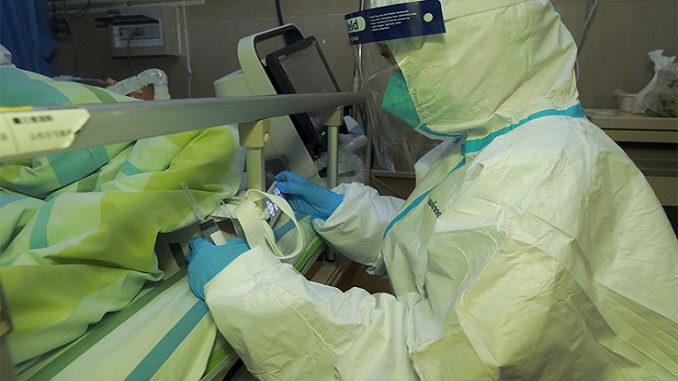
Lavina D’Souza hasn’t been able to collect her government-supplied anti-HIV medication since the abrupt lockdown of India’s 1.3 billion people last month during the coronavirus outbreak, The Associated Press writes.
Marooned in a small city away from her home in Mumbai, the medicine she needs to manage her disease has run out. The 43-year-old is afraid that her immune system will crash: “Any disease, the coronavirus or something else, I’ll fall sick faster.”
D’Souza said others also must be “suffering because of the coronavirus without getting infected by it.”
As the world focuses on the pandemic, experts fear losing ground in the long fight against other infectious diseases like AIDS, tuberculosis and cholera that kill millions every year. Also at risk are decades-long efforts that allowed the World Health Organization to set target dates for eradicating malaria, polio and other illnesses.
With the coronavirus overwhelming hospitals, redirecting medical staff, causing supply shortages and suspending health services, “our greatest fear” is resources for other diseases being diverted and depleted, said Dr. John Nkengasong, head of the Africa Centers for Disease Control and Prevention.
That is compounded in countries with already overburdened health care systems, like Sudan. Doctors at Al-Ribat National Hospital in Sudan’s capital, Khartoum, shared a document detailing nationwide measures: fewer patients admitted to emergency rooms, elective surgeries indefinitely postponed, primary care eliminated for non-critical cases, and skilled doctors transferred to COVID-19 patients.
Similar scenes are unfolding worldwide. Even in countries with highly developed health care systems, such as South Korea, patients seeking treatment for diseases like TB had to be turned away, said Hojoon Sohn, of Johns Hopkins Bloomberg School of Public Health, who is based in South Korea.
About 30% of global TB cases — out of 10 million each year — are never diagnosed, and the gaps in care are concentrated in 10 countries with the most infections, Sohn said.
“These are people likely not seeking care even in normal circumstances,” he said. “So with the COVID-19 pandemic resulting in health systems overload, and governments issuing stay-at-home orders, it is highly likely that the number of TB patients who remain undetected will increase.”
In Congo, already overwhelmed by the latest outbreak of Ebola and years of violent conflict, the coronavirus comes as a measles outbreak has killed over 6,000 people, said Anne-Marie Connor, national director for World Vision, a humanitarian aid organization. “It’s likely we’ll see a lot of ‘indirect’ deaths from other diseases,” she said.
The cascading impact of the pandemic isn’t limited to treatment. Other factors, like access to transportation during a lockdown, are threatening India’s progress on TB. Patients and doctors can’t get to clinics, and it’s difficult to send samples for testing, AP adds.
India has nearly a third of the world’s TB cases, and diagnosing patients has been delayed in many areas. Dr. Yogesh Jain in Chhattisgarh — one of India’s poorest states — and other doctors fear that means “TB cases would certainly increase.”
Coronavirus-related lockdowns also have interrupted the flow of supplies, including critical medicine, protective gear and oxygen, said Dr. Marc Biot, director of operations for international aid group Doctors Without Borders.




Be the first to comment